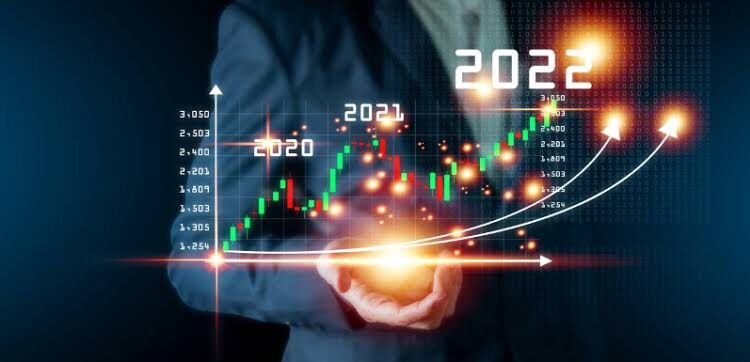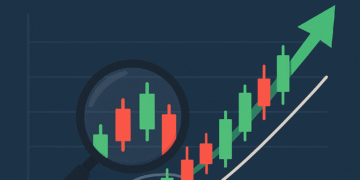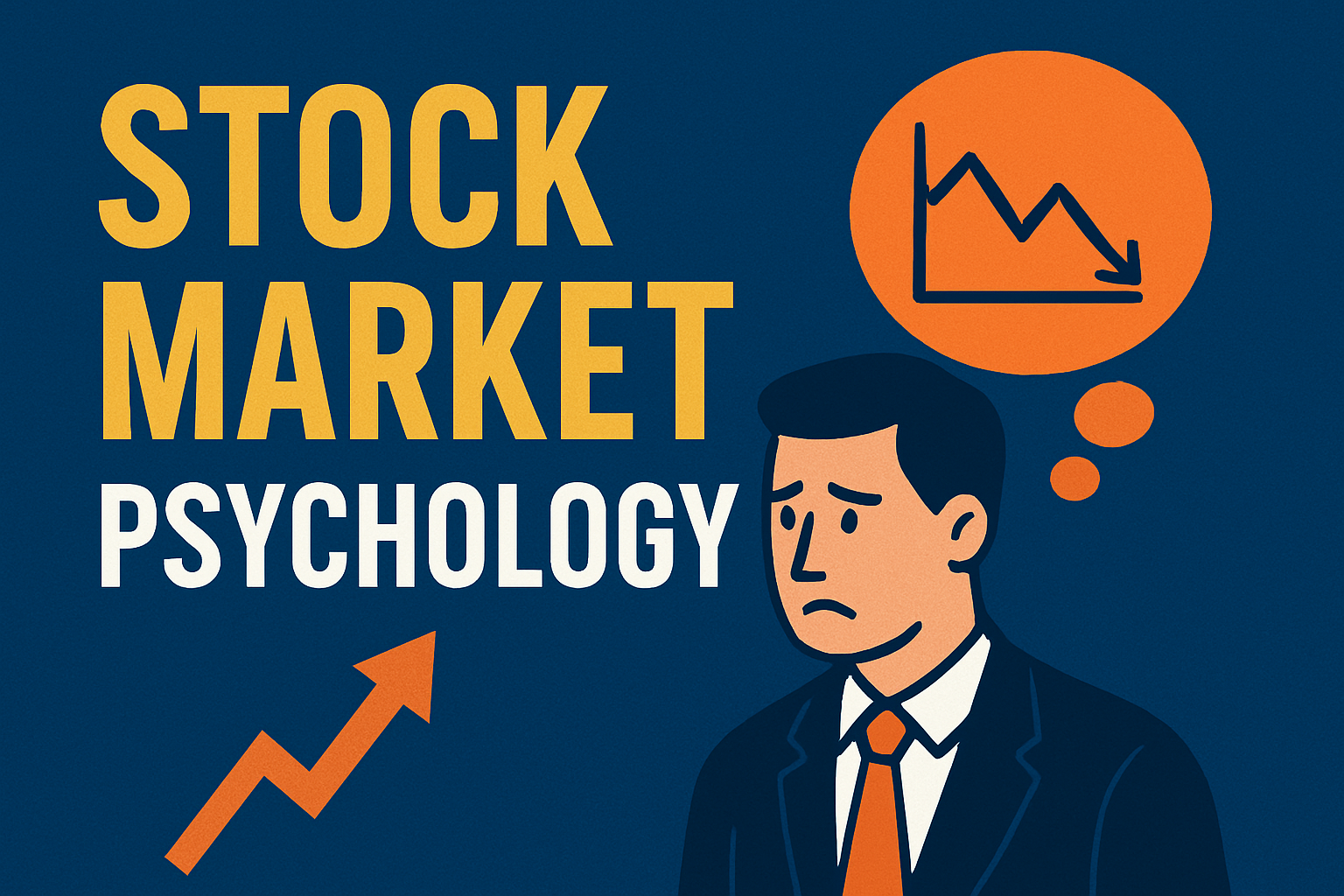The finance world is buzzing with AI’s potential. Nvidia’s market cap has skyrocketed to $2.3 trillion. This shows how excited people are about AI’s role in stocks.

Investors are asking: is this a hype-driven bubble, or a real chance to make money? The numbers look good, but the big question is: can AI investing really deliver?
Key Takeaways
- AI’s growing presence in the stock market is undeniable.
- Nvidia’s market cap has reached $2.3 trillion, highlighting AI’s potential.
- Investors must discern between hype and real investment opportunities.
- AI-driven investing may offer significant returns, but risks are involved.
- Understanding AI’s role in the stock market is crucial for informed investment decisions.
AI and the Stock Market: The New Frontier of Investing
The stock market is changing with AI. Investors are looking for new ways to win. Artificial intelligence is becoming a key player in finance.
The Evolution of Technology in Financial Markets
The financial world has always been quick to adopt new tech. From online trading to complex algorithms, tech has changed how we invest. AI in stock trading is the next big thing, offering new ways to analyze data and make decisions.
AI is not just for trading. It’s also used for:
- Finding fraud and making markets safer
- Making it easier to start investing
- Using data to predict and collect debts
Why AI Matters to Today’s Investors
In today’s fast world, machine learning stock trading is key. AI can quickly sort through huge amounts of data. This gives investors insights to help them make better choices.
AI offers many benefits to investors, including:
- Better market analysis through recognizing patterns
- Decisions based on data, not emotions
- Watching markets 24/7, so investors can act fast
Looking ahead to AI investment opportunities in 2025, AI’s role in stock trading will only grow. Those who use AI will be better equipped to handle today’s financial markets.
Understanding AI’s Role in Modern Stock Trading
In the fast-changing world of finance, AI is playing a key role in stock trading. It’s making trading faster and more based on data. This change is big for the finance world.

From Human Traders to Algorithms
The move from human traders to algorithms is a big change. Algorithmic trading with AI helps make decisions faster and more accurate. It also cuts down on the impact of emotions in trading.
AI trading systems are becoming popular with big investors like hedge funds. They use AI to analyze data, news, and social media fast. This gives traders useful information.
How Machine Learning Transforms Market Analysis
Machine learning, a part of AI, is changing how we analyze markets. It helps look at complex data and predict trends. Stock market automation through machine learning finds patterns humans might miss. This leads to better investment choices.
Machine learning in finance uses past data to guess future market moves. This way, trading strategies get better over time. They adapt to new data and market changes.
As AI keeps improving, its role in stock trading will only get bigger. It will open up new chances for investors and change the finance world.
The Current State of AI in Stock Trading
AI in stock trading has made big strides in predictive analytics and algorithmic trading. It’s changing the financial world by giving investors smart tools for market analysis and making decisions.
AI-Powered Market Predictions
AI is changing how investors see the stock market. Companies like Kavout and Trade Ideas use AI for accurate market forecasts and insights. They analyze huge amounts of data to spot trends humans might miss.
“AI-driven predictive analytics is not just a tool; it’s a game-changer for investors looking to stay ahead of the curve.” –
Financial Analyst
AI in market predictions brings many benefits, including:
- More accurate market trend forecasts
- Quick analysis of large datasets
- Better decision-making for investors
Algorithmic Trading Systems in 2025
Algorithmic trading systems are getting smarter, thanks to AI. These systems make trades based on rules, much faster than humans can.
| Feature | Traditional Trading | AI-Driven Algorithmic Trading |
|---|---|---|
| Speed | Human reaction time | Milliseconds |
| Data Analysis | Limited to human capacity | Large datasets analyzed quickly |
| Emotional Bias | Prone to emotional decisions | Emotion-free trading |
Looking ahead to 2025, AI in stock investing seems bright. With ongoing improvements in AI trading platforms, those who use these technologies will likely have an edge in the market.
Popular AI Investment Platforms Transforming Wall Street
AI has changed the stock market, bringing new platforms to the table. These platforms use AI to predict the market better, trade faster, and tailor investment plans for each investor.
Kavout: AI-Driven Investment Intelligence
Kavout leads the way with its AI platform. It uses machine learning to sift through huge amounts of data. This gives investors key insights to spot good investments and forecast market shifts.
Key Features of Kavout:
- Advanced data analytics using AI
- Personalized investment recommendations
- Real-time market monitoring
Trade Ideas: Predictive Analytics for Traders
Trade Ideas uses AI for predictive analytics. It scans the market non-stop, finding trading chances based on set rules. Its AI gets smarter with each market update, making its predictions more accurate.
Trade Ideas’ Predictive Capabilities:
| Feature | Description | Benefit |
|---|---|---|
| Real-time Scanning | Monitors market data continuously | Timely trading opportunities |
| Customizable Alerts | Alerts based on user-defined criteria | Personalized trading experience |
| Advanced Analytics | Uses AI for predictive insights | Data-driven trading decisions |
Zacks: Traditional Analysis Meets AI
Zacks Investment Research is a big name in investing. It combines traditional analysis with AI. This mix gives investors both old-school research and cutting-edge AI insights.
Zacks’ AI Integration:
- Enhanced stock ranking system using AI
- Improved predictive models for market trends
- Comprehensive research reports
As AI grows, these platforms will get even better. They’ll offer new ways to tackle the stock market. Kavout, Trade Ideas, and Zacks are leading this AI revolution in stock trading.

How Institutional Investors Are Leveraging AI
Hedge funds and investment banks are leading the way in using AI. They use AI to make better investment choices and manage risks. This change is making their analysis more detailed and their trades faster.
Proprietary AI Systems in Hedge Funds
Hedge funds are using their own AI systems to improve their trading. These AI systems look at a lot of market data, find patterns, and predict what will happen next. This helps hedge funds stay ahead in the market.
The use of AI in hedge funds includes:
- Advanced data analysis to spot market trends
- Predictive modeling to guess stock prices
- Automated trading systems to make trades at the best times
If you’re thinking should i invest in ai stocks now?, knowing how hedge funds use AI is helpful. AI’s growing use by these smart investors shows AI’s strong potential in investing.
Investment Banks’ AI Integration Strategies
Investment banks are also putting a lot into AI. They use AI to better serve clients and improve their trading. AI helps with:
- Enhancing risk management by spotting potential downturns
- Improving trading strategies with better data analysis
- Creating AI-driven investment products for clients
When looking at best ai stocks to invest in 2025, focus on companies that support the AI world. Look at those that provide services and infrastructure to banks and hedge funds.
The question of whether can ai predict stock market crashes? is tricky. AI is great at analyzing data and predicting trends, but some market events are hard to predict. Still, AI’s power to handle lots of data makes it useful for risk assessment.
The AI Stock Market Bubble Debate
Investors are wondering if the AI stock market is a bubble ready to burst. The excitement around AI investment has some comparing it to the dot-com bubble. Yet, others believe it’s a lasting change in finance.
Historical Parallels: Dot-com Bubble vs. AI Boom
The dot-com bubble saw a quick rise and fall in tech stocks. Today’s AI boom has also seen a surge in AI stocks, with some growing fast. Yet, there are big differences between the two.
The AI boom is not just hype. It’s driven by real tech progress and growing use in fields like healthcare and finance. Machine learning algorithms are now being used in everything from healthcare to finance, offering value not seen in the dot-com era.

Indicators of Sustainable Growth vs. Hype
To figure out if the AI boom is real or just hype, we need to look at a few things. These include how much AI is being used, if AI is driving revenue, and if there’s a strong demand for AI solutions.
| Indicator | Sustainable Growth | Hype |
|---|---|---|
| AI Adoption | Increasing across industries | Limited to a few sectors |
| Revenue Growth | Driven by AI solutions | Speculative investment |
| Market Demand | High demand for AI | Low demand, high speculation |
By looking at these signs, investors can make better choices about AI investments. The debate is ongoing, but AI’s impact on the stock market is undeniable. It offers both chances and challenges for US investors.
Key Takeaways:
- The AI boom is being compared to the dot-com bubble, but with key differences.
- Tangible advancements and adoption are backing the current AI boom.
- Investors should look at AI adoption, revenue growth, and market demand to assess sustainability.
Top AI Stocks to Watch in2025
As we near 2025, investors are eager to spot AI stock opportunities. The AI revolution is changing many sectors, including the stock market. Several companies are leading this tech leap, offering great investment chances.
Established Tech Giants Leading the AI Revolution
Big tech names are driving the AI revolution. Nvidia and Microsoft are at the forefront with their advanced AI tech.
- Nvidia leads in AI computing hardware, offering GPUs crucial for complex AI model training.
- Microsoft invests heavily in AI research and development, integrating AI into its offerings.
Emerging AI Specialists with Growth Potential
New AI players are also making a mark. OpenAI and C3.ai are creating innovative AI solutions with growth potential.
- OpenAI is famous for its advanced language models and AI research, expanding AI’s capabilities.
- C3.ai is a top name in enterprise AI software, aiding businesses in AI adoption for efficiency and innovation.
AI Infrastructure Companies Supporting the Ecosystem
AI infrastructure companies are vital to the ecosystem. They offer the hardware and software needed for AI development and use.
- Micron Technology is key for memory and storage solutions essential for AI computing.
- Advanced Micro Devices (AMD) also plays a big role, providing semiconductor products for AI applications.
For those looking to profit from the AI boom in 2025, these companies are worth watching. They are well-set to benefit from AI’s ongoing growth.
AI-Driven ETFs and Mutual Funds for Diversified Exposure
Investors are now turning to AI-driven ETFs and mutual funds. These options let you invest in a mix of AI-related stocks. This way, you can enjoy the benefits of AI without the risks of picking individual stocks.
These funds track the performance of AI-focused companies. They offer a wide range of AI-related stocks. This approach helps spread out risks and can lead to more stable returns.
Leading AI-Focused Fund Performance Analysis
AI-driven ETFs and mutual funds have seen impressive growth. For example, the ARK Innovation ETF has shown strong returns. It focuses on new and disruptive technologies, including AI.
| Fund Name | 1-Year Return | 3-Year Return | Expense Ratio |
|---|---|---|---|
| ARK Innovation ETF | 25.6% | 45.2% | 0.75% |
| Global X Robotics & AI ETF | 20.1% | 30.5% | 0.68% |
| iShares Robotics and Artificial Intelligence ETF | 18.5% | 28.2% | 0.47% |
Comparing Management Strategies and Holdings
Different AI-driven funds have different strategies and stock portfolios. Some focus on big tech companies with AI, while others invest in new AI startups.
When choosing a fund, look at the expense ratio, portfolio, and strategy. This helps you pick the right fund for your goals and risk level.

In conclusion, AI-driven ETFs and mutual funds are great for getting into AI. By looking at top funds’ performance and comparing strategies, you can make smart investment choices in this fast-changing field.
Benefits of AI-Based Trading Systems
The future of stock investing is being shaped by AI. It brings many benefits to the trading process. As we move into 2025, AI is changing how investors analyze and interact with the market.
Enhanced Market Analysis and Pattern Recognition
AI-based trading systems offer advanced market analysis. They help investors make better decisions. AI can spot patterns and trends that humans might miss.
A recent study found that AI-driven analytics uncover hidden insights. This gives investors a competitive edge.
This advanced analysis is key in today’s fast market. Timely and accurate info can greatly impact investment results.
Emotion-Free Trading Decisions
AI-based trading systems make emotion-free trading decisions. Unlike humans, AI isn’t swayed by emotions like fear or greed. This leads to more consistent investment performance.
“The use of AI in trading removes the emotional element, allowing for more disciplined and strategic investment decisions.”
24/7 Market Monitoring Capabilities
AI-based trading systems also offer 24/7 market monitoring capabilities. Investors can respond to market changes anytime. This is especially valuable in today’s global markets.
- Continuous market surveillance
- Real-time data processing
- Automated trading responses
As the stock market evolves, AI’s benefits are clear. AI enhances market analysis, eliminates emotional biases, and monitors markets 24/7. AI is set to be crucial in the future of stock investing.
Risks and Limitations of AI in Stock Investing
AI is becoming more important in the stock market, but it raises questions about risks and limits. While AI can change investing, we must understand its challenges.

Algorithm Biases and Technical Limitations
AI in stock investing faces a big risk: algorithm biases. These biases happen when AI models are trained on bad or incomplete data. They can lead to wrong predictions. Also, AI can’t fully grasp complex market dynamics, making things worse.
AI models might not handle unexpected events well. This can greatly affect the market. So, investors need to know these limits when using AI-driven investing strategies.
Systemic Risks and Flash Crashes
AI in stock trading also brings systemic risks and flash crashes. More AI use can make the market less diverse. This makes it more prone to sudden, big changes.
Flash crashes can happen when AI systems quickly make trades based on market conditions. These crashes can hurt investors a lot. So, it’s key to have strong risk management when using AI in stock trading.
Regulatory Challenges and Compliance Issues
AI in stock investing also brings up regulatory challenges and compliance issues. As AI grows, rules need to keep up. They must ensure AI trading is fair and follows the law.
Investors must know the rules for using AI in their strategies. This includes making sure AI models are clear, explainable, and can be checked. This is a hard task because many AI systems are complex.
Separating Hype from Reality: Is AI a True Investment Opportunity?
AI is changing the financial markets, making it hard for investors to know what’s real and what’s just hype. The question of whether AI is a good investment is complex.
Measuring Actual AI Implementation vs. Marketing
It’s tough to tell if AI is truly valuable or just a marketing trick. Some companies use AI to add real value, while others just follow the trend.
To make smart choices, investors need to look deeper than just marketing. They should check how well companies use AI, not just what they say. For example, a company might say they use AI for predictions, but really, their AI is still in the early stages.
Long-term Value Creation Potential
Investors need to think about AI’s long-term value. They should look at the company’s AI technology now and their plans for the future.
Companies that truly benefit from AI show certain traits. They keep investing in AI research, use AI to improve their business, and have a clear plan to use AI in their operations.
- Continuous investment in AI research and development
- Practical applications of AI that drive business results
- A clear strategy for integrating AI into their core operations
| Company | AI Implementation | Long-term Potential |
|---|---|---|
| NVIDIA | Advanced AI hardware and software solutions | High, due to dominance in AI computing |
| Palantir | Data analytics platforms using AI | High, due to strong government and enterprise contracts |
| Alphabet (Google) | Deep integration of AI across various services | High, due to vast resources and AI-driven innovation |
By looking at these factors, investors can see if AI is a good investment for them. It’s not just about the excitement around AI. It’s about finding companies that really use AI to create lasting value.
Expert Insights: What Market Analysts Are Saying About AI
To grasp AI’s role in stock investing, we look at what top analysts say. AI’s role in finance is growing fast. Experts share their views on its effects.
Goldman Sachs’ Perspective on AI Market Integration
Goldman Sachs leads in AI use in finance. They say AI is changing stock trading by improving analysis and predictions. AI-driven algorithmic trading is getting smarter, leading to quicker and better choices.
Goldman Sachs notes AI’s role goes beyond quick trades. It’s used for long-term investment strategies too. AI can spot undervalued companies by digging through lots of data, like financial reports and social media.

Bloomberg Intelligence on Future AI Trading Trends
Bloomberg Intelligence sheds light on AI’s future in stock trading. They believe AI will keep shaping markets, with predictive analytics getting better. They foresee AI trading platforms reaching more people, making investment tools more accessible.
Bloomberg Intelligence highlights natural language processing (NLP) as a key trend. NLP can understand news and earnings calls to guide investments. This tech will help AI predict stock prices better.
Thinking about investing in AI stocks? It’s crucial to listen to what leading analysts say. Their advice can help us navigate the complex world of AI in stock markets.
How Retail Investors Can Start Using AI Tools in2025
AI technology has made big strides, and now retail investors can use advanced tools to improve their investment strategies in 2025. AI in stock trading is changing how individual investors make choices. It offers new chances for growth and better portfolio management.

Accessible AI Platforms for Individual Traders
Many AI platforms are now open to retail investors. They give the tools needed for smart investment choices. Tickeron and Kavout lead the way, offering AI insights and analytics once only for big investors.
- Tickeron: Uses AI for stock screening, with real-time data analysis and pattern recognition.
- Kavout: Offers AI-driven investment intelligence, helping find trading opportunities.
These platforms let retail investors quickly analyze market data, spot trends, and make informed decisions.
Building an AI-Informed Investment Strategy
To use AI tools well, retail investors should follow these steps:
- Start with Education: Learn the basics of AI and its role in stock trading.
- Choose the Right Platform: Pick an AI platform that fits your investment goals and risk level.
- Integrate AI Insights with Traditional Analysis: Mix AI insights with your own research for a solid strategy.
- Monitor and Adjust: Keep an eye on your AI tools’ performance and tweak your strategy as needed.
By using AI tools and adding them to their strategies, retail investors can boost their returns. They can also handle the stock market’s complexities better in 2025.
Conclusion: Navigating the AI Investment Landscape
AI is changing the stock market, and investors need to be careful and informed. AI-driven investing is now a reality that’s changing Wall Street.
AI in stock trading brings new chances for investors. Sites like Kavout and Trade Ideas use AI for smart investment advice.
To do well, investors should keep up with AI trends and know the risks. This way, they can use AI to reach their investment goals.
The AI investment world is always changing. It’s key to stay flexible and informed. By understanding AI’s role in the stock market, investors can make better choices and lead in AI-driven investing.
FAQ
What is the role of AI in the stock market?
AI is changing the stock market in big ways. It helps make better investment choices, spots fraud, and makes onboarding easier. It’s also used for trading, analyzing markets, and predicting trends.
How is AI changing stock trading in 2025?
AI is making trading more efficient by using algorithms instead of humans. It’s also improving market analysis with machine learning. This helps big investors make smarter choices and stay ahead.
What are some popular AI investment platforms?
Kavout, Trade Ideas, and Zacks are well-known AI investment platforms. They use AI to provide smart investment insights, predict trends, and combine AI with traditional analysis.
Are AI-powered market predictions reliable?
AI predictions can be very accurate. They rely on complex algorithms and machine learning to analyze huge amounts of data.
What are the benefits of AI-based trading systems?
AI trading systems offer better market analysis and make decisions without emotions. They also watch the market 24/7. These advantages can lead to smarter investments and better results.
What are the risks of AI in stock investing?
AI investing comes with risks like algorithm biases and technical limits. There are also systemic risks and regulatory challenges. These can have big consequences if not managed well.
Can AI predict stock market crashes?
AI can analyze lots of data and spot potential risks. But, it can’t guarantee predicting stock market crashes. AI models are trained on past data, but they might miss unexpected events.
How can retail investors start using AI tools in 2025?
Retail investors can use AI tools by checking out platforms like Kavout, Trade Ideas, and Zacks. They can also mix AI insights with traditional analysis to create a smart investment strategy.
What is the future of AI in the stock market?
The future of AI in the stock market looks bright. Advances in machine learning and natural language processing will shape its role. As AI grows, it will play a bigger part in making investment decisions.
Should I invest in AI stocks now?
Deciding to invest in AI stocks depends on your financial goals and how much risk you’re willing to take. It’s key to research thoroughly, weigh the risks and rewards, and talk to a financial advisor if needed.
What are some top AI stocks to watch in 2025?
Keep an eye on AI stocks like Nvidia, Microsoft, and Alphabet. These are tech giants, AI specialists, and companies that support AI infrastructure.
How is AI being used by institutional investors?
Hedge funds and investment banks use AI to stay competitive. They employ AI systems and strategies to make better investment choices and manage risks.










